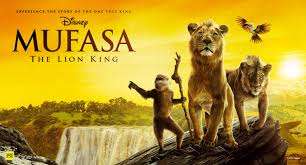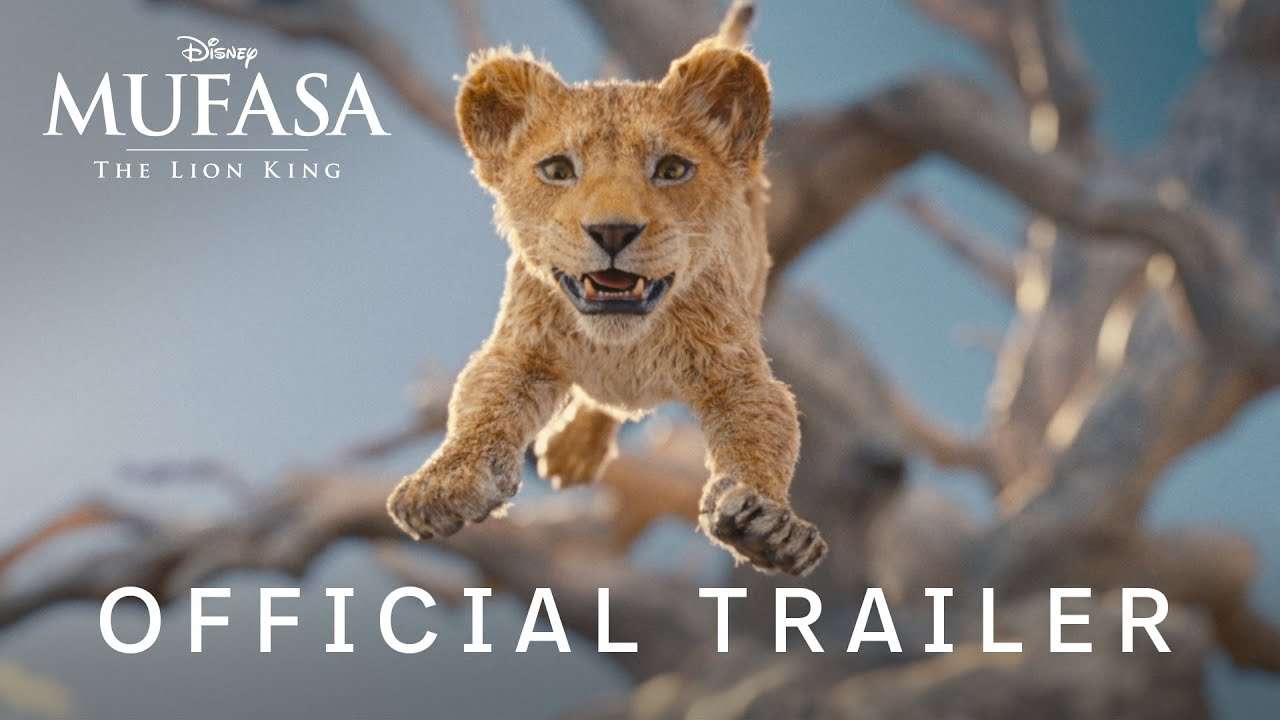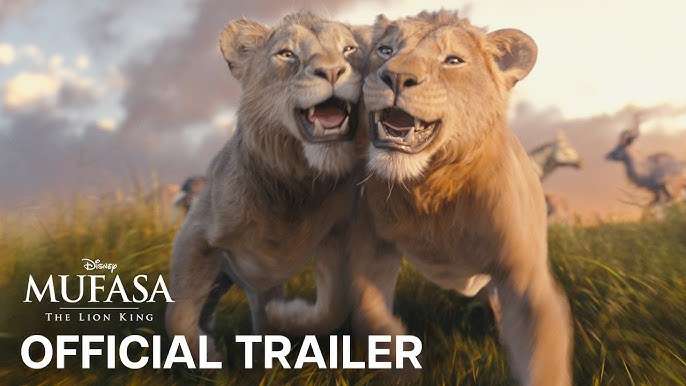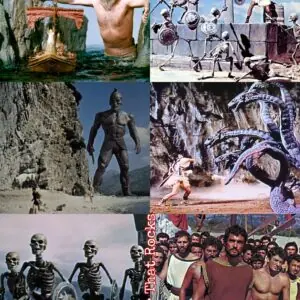Introduction
Disney’s Mufasa: The Lion King (2024), directed by Barry Jenkins (Moonlight), is a prequel to the 2019 photorealistic CGI remake of the animated classic. This origin story explores the rise of Simba’s father, Mufasa, from orphaned cub to revered king. While the film delivers breathtaking visuals and a strong voice cast, it struggles to justify its existence, offering little new depth to a story that didn’t need expanding. Fans of The Lion King may appreciate the nostalgia, but Mufasa ultimately feels like a corporate extension of a beloved franchise rather than a meaningful addition.
Plot Overview
Told in flashback by Rafiki (John Kani) to a young Kiara (daughter of Simba and Nala), the film follows Mufasa (Aaron Pierre) as a cub separated from his royal lineage after a tragedy. Raised in the outskirts of the Pride Lands, he befriends a rogue lion named Taka (later Scar, voiced by Kelvin Harrison Jr.) and navigates his destiny to become king. Along the way, he encounters familiar faces—including a younger Rafiki and Zazu—while new characters, like a wise mandrill (Thandiwe Newton), guide him.

The story contrasts Mufasa’s nobility with Scar’s growing resentment, setting up the sibling rivalry that defines the original film. However, unlike The Lion King (1994), which balanced Shakespearean drama with heart and humor, Mufasa leans heavily into solemn myth-making, losing some of the charm that made the original timeless.
Strengths
1. Stunning Visuals
Like its 2019 predecessor, Mufasa is a technical marvel. The CGI animals and African landscapes are hyper-realistic, with sweeping savanna vistas and detailed fur textures. Some sequences—particularly a wildebeest stampede callback—are visually breathtaking.

2. Strong Voice Performances
-
Aaron Pierre brings gravitas and warmth to Mufasa, though he’s inevitably compared to James Earl Jones.
-
Kelvin Harrison Jr. delivers a nuanced take on young Scar, making his descent into villainy more tragic than outright evil.
-
Thandiwe Newton and John Kani add emotional weight as Mufasa’s mentors.
3. Emotional Score
Hans Zimmer returns with a reworked version of his iconic score, blending familiar themes with new African-inspired compositions. The music elevates key moments, even when the script falters.
Weaknesses
1. Unnecessary Story
The original Lion King never begged for a Mufasa prequel. His backstory—while mildly interesting—doesn’t deepen the lore in a meaningful way. The film often feels like Disney mining nostalgia rather than telling a vital story.
2. Lack of Humor & Joy
The 1994 film balanced tragedy with humor (Timon & Pumbaa, Zazu’s antics). Mufasa is more solemn, with fewer lighthearted moments. Even the hyenas, once comic relief, are underused.
3. Pacing Issues
The first act drags with exposition, while the rushed climax undercuts Scar’s turn to darkness. Some new characters (like a meerkat sidekick) feel tacked on for merchandising.
Comparison to Previous Lion King Films

-
1994 Animated Classic: A near-perfect blend of emotion, music, and storytelling.
-
2019 Remake: Visually impressive but soulless, lacking the original’s magic.
-
2024’s Mufasa: Better than the remake thanks to stronger character work, but still unnecessary.
Themes & Missed Opportunities
Mufasa touches on destiny, jealousy, and leadership but doesn’t explore them as deeply as it could. Scar’s jealousy is more fleshed out here, but the film shies away from true moral ambiguity. A bolder take—like The Godfather Part II for lions—might have justified the prequel.
Final Verdict
Mufasa: The Lion King is a beautifully crafted but ultimately hollow experience. It will please die-hard fans craving more Pride Lands lore, but general audiences may wonder why this story needed telling.
Rating: 6.5/10 – “Worth a watch for the visuals and performances, but don’t expect a new classic.”
Recommendation
-
For fans: A decent expansion of the universe, but temper expectations.
-
For casual viewers: Stick to the 1994 original.
-
For kids: They’ll enjoy the animals, but might miss the fun of Timon & Pumbaa.





